

Australia Day offers a powerful opportunity to reflect on the rich tapestry that makes this country truly unique. From the enduring wisdom and culture of Aboriginal and Torres Strait Islander peoples to the vibrant diversity of communities across the continent, Australia is a land of many voices, stories, and landscapes. Celebrating Australia Day means acknowledging the past, embracing the present, and nurturing a future built on respect, inclusion, and shared pride.
At the beginning of the year, children step into a new environment filled with unfamiliar faces, routines, and expectations. By introducing the theme “Building Our Classroom Family,” educators create a safe, welcoming space where every child feels valued, connected, and supported.
This theme emphasises belonging, emotional safety, and community. It helps babies form secure attachments, toddlers learn the joy of helping and sharing, and preschoolers develop empathy and responsibility. Through songs, stories, group activities, and family-centered displays, children begin to see the classroom not just as a place to learn, but as a family where everyone cares for one another.
By weaving this theme into daily practice, educators intentionally nurture identity, celebrate diversity, and strengthen the bridge between home and school. The classroom becomes a family where each child’s uniqueness is honored, and together, they build the foundation for lifelong learning and relationships.
Every educator has witnessed it: a child overwhelmed by emotions so big they spill into the learning space. These moments can feel disruptive, but they are also opportunities. When children learn to regulate emotions with the support of trusted adults, they build resilience, empathy, and lifelong skills for navigating challenges.
This learning experience is designed to approach the topic gently through play, storytelling, small‑world exploration, and hands‑on creativity. Rather than focusing on danger, it highlights helpers, community care, and nature’s remarkable ability to heal and regrow. The aim is to empower children with knowledge in a developmentally appropriate way, supporting emotional regulation while strengthening their connection to Country and community.
By engaging with familiar materials, calm routines, and open‑ended play, children can explore big ideas safety, responsibility, resilience, and environmental cycles in ways that feel safe, supported, and meaningful. This plan honours children’s voices, respects cultural perspectives on fire and land care, and provides educators with a thoughtful, responsive framework for guiding conversations during bushfire season.
Celebrate global traditions, spark curiosity, and build cultural awareness with this beautifully designed poster set featuring Santa figures from around the world. These posters introduce children to the diverse ways different cultures celebrate the festive season through clothing, colours, names, and unique customs.
Bushfires are a natural part of the Australian landscape, but for young children they can also be confusing, worrying, or emotionally charged—especially when smoke, sirens, or community conversations become part of their daily experience. In early childhood settings, educators play a vital role in helping children make sense of what they see and hear in a way that is safe, honest, and developmentally appropriate.
Talking about bushfires with young children is not about giving detailed information or exposing them to frightening images. Instead, it is about offering calm explanations, reassuring routines, and opportunities for children to express their thoughts through play, art, and conversation. When approached thoughtfully, these discussions can strengthen children’s sense of safety, build resilience, and deepen their understanding of nature, community helpers, and environmental regrowth.
Pattern blocks are a classic early childhood resource, and the Christmas Pattern Block Mats add a joyful seasonal twist that children absolutely love. These printables invite children to create festive images using standard pattern blocks, supporting spatial reasoning, problem‑solving, and shape recognition in a hands‑on, engaging way.
Whether you’re planning Christmas activities, setting up a math provocation, or looking for quiet table tasks during the festive season, these mats are a perfect addition to your program.
Support toddler identity development through choices, routines, relationships, and play. Explore practical examples that build autonomy, belonging, and emotional confidence.
Toddlers develop a strong sense of identity through everyday choices, warm relationships, predictable routines, and meaningful play. When educators intentionally design experiences that honour children’s autonomy, culture, emotions, and social connections, toddlers begin to see themselves as capable, valued, and connected members of their community.
These experiences don’t need to be elaborate. In fact, identity is built most powerfully through repetition, belonging, and being truly seen.
The 10 Free Santa Beard Cutting printables are a simple yet powerful activity designed to help children practice their cutting skills. By trimming Santa’s beard along different types of lines, children engage in a playful, festive task that builds essential developmental skills.
Morning group time sets the tone for the day in early childhood settings. For children aged 3–5, this is a golden opportunity to build belonging, strengthen language, nurture rhythm, and ease transitions into play and learning. A well‑designed group time moves calmly from centering rituals into energising activities, balancing structure with child‑led moments. Below are engaging strategies and examples that educators can adapt to their own classrooms, ensuring mornings feel joyful, connected, and purposeful.
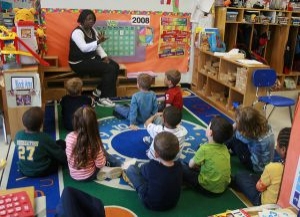 Working as a childcare professional can be a challenge especially when dealing with behavioural problems which may arise. The techniques we use when dealing with… Read More
Working as a childcare professional can be a challenge especially when dealing with behavioural problems which may arise. The techniques we use when dealing with… Read More
 There are different types of behaviour that children can display and sometimes it can be hard to manage, especially if a child is having behavioural… Read More
There are different types of behaviour that children can display and sometimes it can be hard to manage, especially if a child is having behavioural… Read More
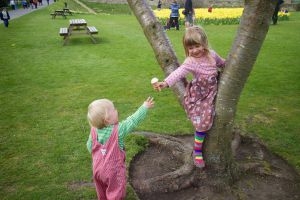 As a parent, your behavioural expectations of your child can be higher than what is actually developmentally appropriate for your child's age.
Read More
As a parent, your behavioural expectations of your child can be higher than what is actually developmentally appropriate for your child's age.
Read More
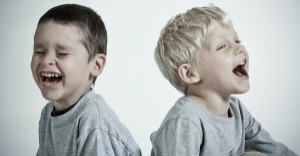 As Educators, there will be many instances where you will need to write about a child's behaviour. For a behaviour management plan, assessments, half-yearly or… Read More
As Educators, there will be many instances where you will need to write about a child's behaviour. For a behaviour management plan, assessments, half-yearly or… Read More
 As Educators when communicating with Parents (through verbal or non-verbal communication), there will be times where we need to discuss issues or concerns that may… Read More
As Educators when communicating with Parents (through verbal or non-verbal communication), there will be times where we need to discuss issues or concerns that may… Read More
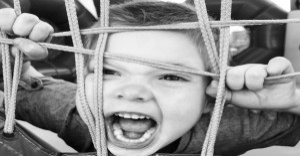 Challenging Behaviour is when a child does something that hurts themselves and/or other people.
Read More
Challenging Behaviour is when a child does something that hurts themselves and/or other people.
Read More
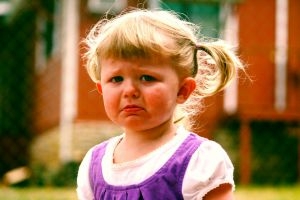 As part of your child's development it is normal for your child to have anxiety and fears. A baby commonly shows a fearful sign to… Read More
As part of your child's development it is normal for your child to have anxiety and fears. A baby commonly shows a fearful sign to… Read More
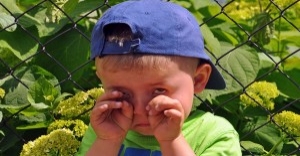 It's always difficult to bring up behavioural issues with parents, it can be nerve wrecking to tell a parent that their child misbehaves but that… Read More
It's always difficult to bring up behavioural issues with parents, it can be nerve wrecking to tell a parent that their child misbehaves but that… Read More
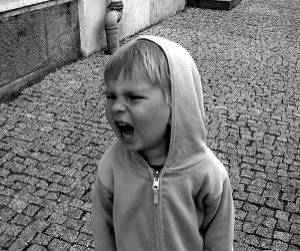 All children deal with anger on a daily basis. Thinking about it as a child, there is a lot to be angry about. Elder people… Read More
All children deal with anger on a daily basis. Thinking about it as a child, there is a lot to be angry about. Elder people… Read More
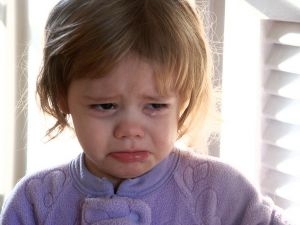 It is important to understand that your child behaviour problems could not just be from attention seeking. There are many factors to take into consideration… Read More
It is important to understand that your child behaviour problems could not just be from attention seeking. There are many factors to take into consideration… Read More
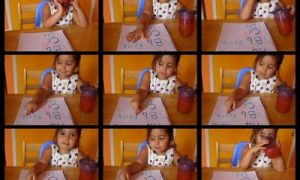
Your preschooler is now able to focus their attention more accurately and is less influenced...
See more...
It is not uncommon for educators to confide that transitions tend to be the most...
See more...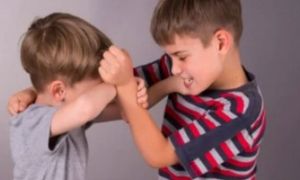
Aggression is a type of behaviour that is triggered by the intention of causing harm...
See more...© 2009-2026 Aussie Childcare Network Pty Ltd. All Rights Reserved.

